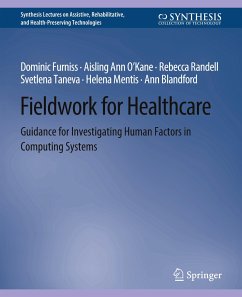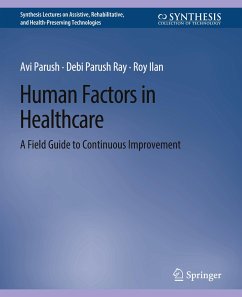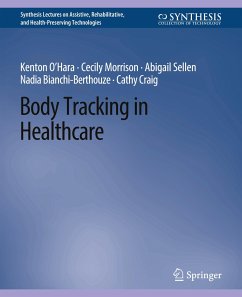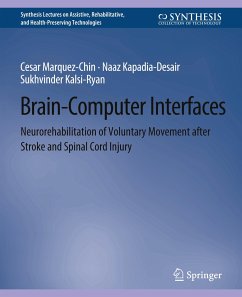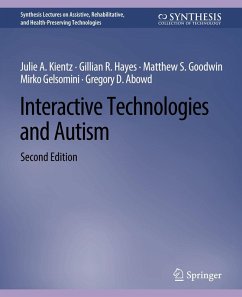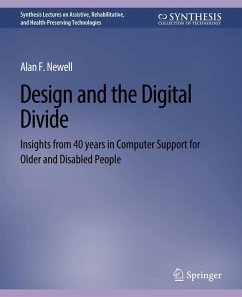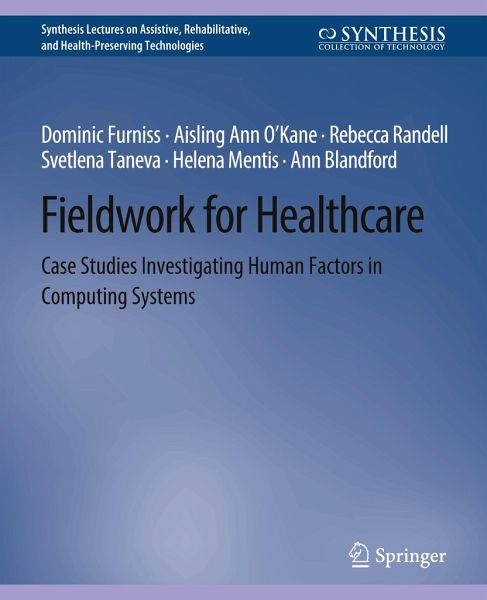
Fieldwork for Healthcare
Case Studies Investigating Human Factors in Computing Systems

PAYBACK Punkte
0 °P sammeln!
Performing fieldwork in healthcare settings is significantly different from fieldwork in other domains and it presents unique challenges to researchers. Whilst results are reported in research papers, the details of how to actually perform these fieldwork studies are not. This is the first of two volumes designed as a collective graduate guidebook for conducting fieldwork in healthcare. This volume brings together the experiences of established researchers who do fieldwork in clinical and non-clinical settings, focusing on how people interact with healthcare technology, in the form of case stu...
Performing fieldwork in healthcare settings is significantly different from fieldwork in other domains and it presents unique challenges to researchers. Whilst results are reported in research papers, the details of how to actually perform these fieldwork studies are not. This is the first of two volumes designed as a collective graduate guidebook for conducting fieldwork in healthcare. This volume brings together the experiences of established researchers who do fieldwork in clinical and non-clinical settings, focusing on how people interact with healthcare technology, in the form of case studies. These case studies are all personal, reflective accounts of challenges faced and lessons learned, which future researchers might also learn from. We open with an account of studies in the Operating Room, focusing on the role of the researcher, and how participants engage and resist engaging with the research process. Subsequent case studies address themes in a variety of hospital settings, which highlight the variability that is experienced across study settings and the importance of context in shaping what is possible when conducting research in hospitals. Recognising and dealing with emotions, strategies for gaining access, and data gathering are themes that pervade the studies. Later case studies introduce research involving collaborative design and intervention studies, which seek to have an immediate impact on practice. Mental health is a theme of two intervention studies as we move out of the hospital to engage with vulnerable participants suffering from long-term conditions and people in the home. This volume closes with an intervention study in the developing world that ends with some tips for conducting studies in healthcare. Such tips are synthesised through the thematic chapters presented in the companion volume.



